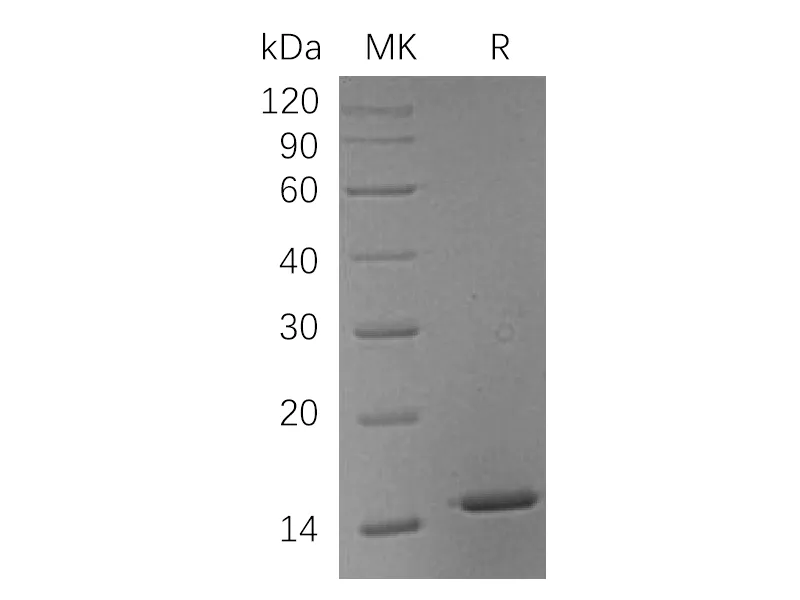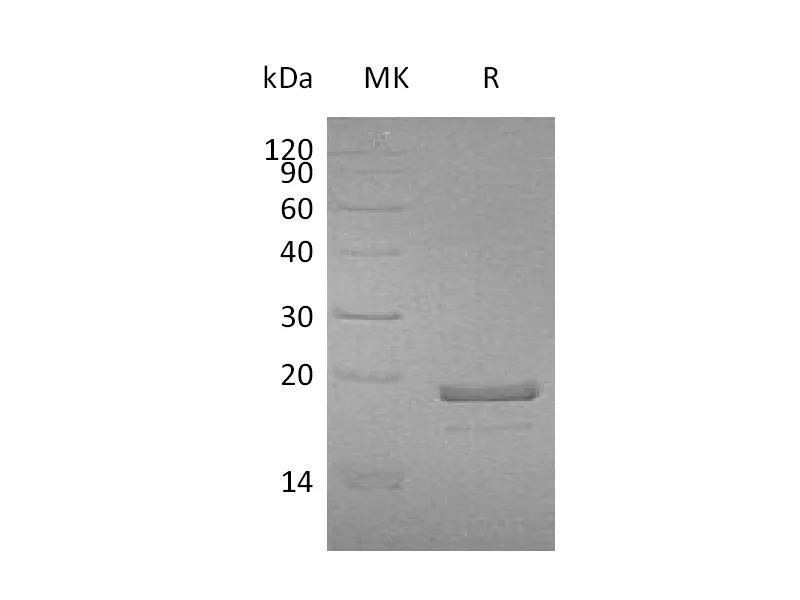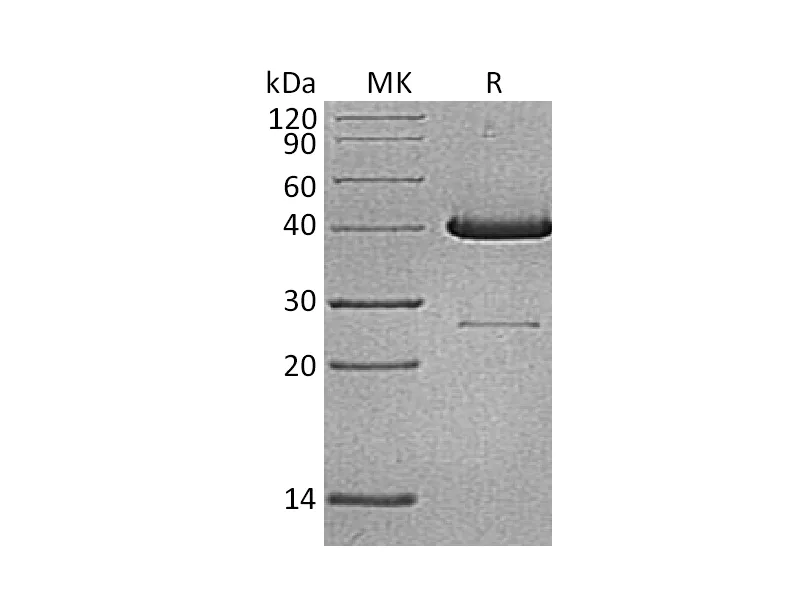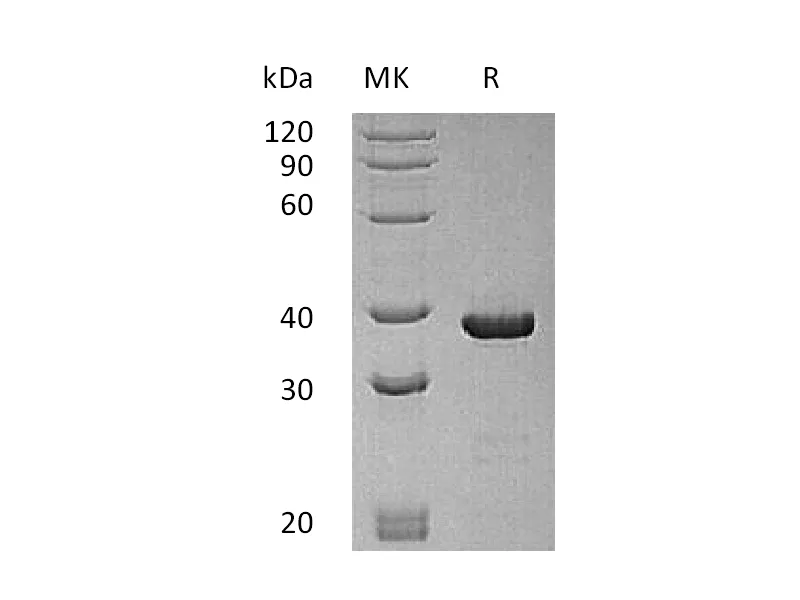| 产品名称 |
Recombinant Human EpCAM (C-6His) |
| 英文名称 |
EpCAM/TROP-1/CD326/Epithelial cell adhesion molecule/Adenocarcinoma-Associated Antigen/Cell Surface Glycoprotein Trop-1 |
| 纯度 |
Greater than 95% as determined by reducing SDS-PAGE |
| 内毒素 |
<1 EU/µg as determined by LAL test. |
| 蛋白构建 |
Recombinant Human Epithelial Cell Adhesion Molecule is produced by our Mammalian expression system and the target gene encoding Gln24-Lys265 is expressed with a 6His tag at the C-terminus. |
| Accession |
AAH14785.1 |
| 表达宿主 |
Human Cells |
| 种属 |
Human |
| 预测分子量 |
28.43 KDa |
| 制剂 |
Lyophilized from a 0.2 μm filtered solution of 20mM PB, 150mM NaCl, pH 7.2. |
| 运输方式 |
The product is shipped at ambient temperature.Upon receipt, store it immediately at the temperature listed below. |
| 稳定性&储存 |
Store at ≤-70°C, stable for 6 months after receipt.Store at ≤-70°C, stable for 3 months under sterile conditions after opening. Please minimize freeze-thaw cycles. |
| 复溶 |
Always centrifuge tubes before opening.Do not mix by vortex or pipetting.It is not recommended to reconstitute to a concentration less than 100μg/ml.Dissolve the lyophilized protein in distilled water.Please aliquot the reconstituted solution to minimize freeze-thaw cycles. |
| 分子别名 |
| Epithelial Cell Adhesion Molecule; Ep-CAM; Adenocarcinoma-Associated Antigen; Cell Surface Glycoprotein Trop-1; Epithelial Cell Surface Antigen; Epithelial Glycoprotein; EGP; Epithelial Glycoprotein 314; EGP314; hEGP314; KSA; Tumor-Associated Calcium Signal Transducer 1; CD326; EPCAM |
| 背景介绍 |
| Epithelial Cell Adhesion Molecule (EpCAM) is a signal type I transmembrane glycoprotein that belongs to the EPCAM family. EpCAM is composed of an extracellular domain with one thyroglobulin type-1 domain, a transmembrane domain and a cytoplasmic domain. EpCAM is found on the surface of adenocarcinoma, but not on mesodermal or neural cell membranes. The EpCAM molecule has been shown to function as a homophilic Ca2+ independent adhesion molecule. It may act as a physical homophilic interaction molecule between intestinal epithelial cells (IECs) and intraepithelial lymphocytes (IELs) at the mucosal epithelium as an immunological barrier providing the first line of defense against infection. Defects in EPCAM are a cause of hereditary non-polyposis colorectal cancer type 8 (HNPCC8) and diarrhea type 5 (DIAR5). EpCAM plays a role in embryonic stem cells proliferation and differentiation; it up-regulates the expression of FABP5, MYC and Cyclin A and Cyclin E. It is highly and selectively expressed by undifferentiated embryonic stem cells. |
注意事项
本司产品仅用于科研,不用于临床诊断和治疗




